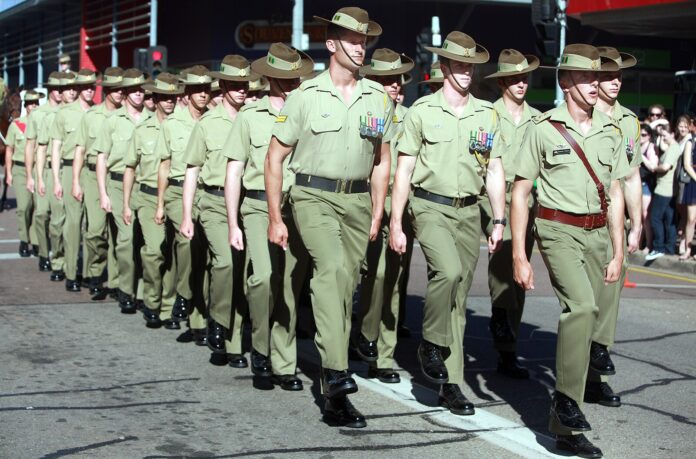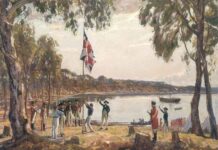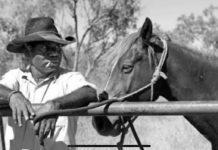
Originally published at Upon Hope on November 9, 2014.
Here we are at the first Remembrance Day to occur on the Centenary of the First World War. Ceremonies will be held to remember those who served and particularly those who died. The act of remembrance is very strong, people want to remember, they want to keep faith with the past and they will get that chance. They will be able to remember.
But there was a time when the act of remembrance was challenged, when we were told to break faith with the past. That remembrance glorified war and in fact led to more wars. That the only way to live a life of peace was to reject war and everything associated with war, including remembrance.
War has always been controversial, its cost can be enormous; treasure, property and lives destroyed. Years taken way from field and craft, from husbands and wives, from children, parents and friends. People do not live forever and that time cannot be returned. It requires sacrifice and hardship to wage war and people live in fear and doubt.
Liberalism, Socialism, Communism and Anarchism all say that war is bad, that war kills the common man and allows the rich to profit. But their commitment to peace is conditional, For the more extreme, revolution is alright, as it is war fought for the right reasons, the liberation of man. Liberalism also has its conditions, it will fight for what it believes whether it is free trade in the Opium Wars or the rights of little countries as in the First World War. But deep down there is the idea that each war is an exception, a once off that will bring peace closer once this one ends. War is bad and as man progresses towards the new man, war will become obsolete. As useful to man as cave painting and just as primitive.
The Romans built monuments to glorify their victories, the Vikings had their sagas as did other peoples. But Christianity believes in glorifying God, not man. Those killed in war had few memorials built to honour them. For many reason that attitude changed during the 1800’s and particularly from the 1840’s. From that time memorials to those who died and medals to those who lived started to become the norm. Most people came to think of those things as good, but a minority always believed that they glorified not the dead but war. Some saw remembrance as a rival to Christianity.
After the the carnage of the First World War the broad Left renewed their idea that war is bad, while at the same time supporting the Russian Revolution. But most people rejected the idea that war was a thing of the past. They did however believe that peace was better than war but they never accepted that in a world of cold winds walking around naked was any kind of defence. The Second World War produced the atomic bomb and the fear of this new weapon helped spread the idea that war should be rejected. The interesting thing I find about the atomic bomb is how consistently it was portrayed. All powerful, there was no defence against it. Never were the limitations of the atomic bomb talked about. It gave a false image and it pushed nihilistic ideas. That there is no hope, that man is doomed, that man is stupid and suicidal.
These ideas all got wrapped up together in the early 1960’s, watch some war movies from the period and you’ll notice them on display. One of the best war movies of the period is Zulu, made in 1964, where there’s a scene in which a young very frightened soldier asks “why us?”, a very 1960’s question. The 1960’s saw the spread of these ideas, that war was bad and outdated. That everything associated with war in any way helped advance war. Soldiers were bad, the military was bad, uniforms were bad, veterans’ organisations were bad, veterans’ reunions were bad, some even went as far as to say veterans themselves were bad.
Reject the past, break faith with the old, that is the only way to create a new and better world. How do we know it’s a better world? Because it’s new, everything new is better, everything old is bad. Veterans reunions’ came under attack, sometimes physical attack. The attitude developed that once the old died out then the young would reject the past, they would move on. Remembrance was a generational thing, not something for the entire nation. But then in the 1980’s things turned. A new generation reached back into the past and embraced it. They weren’t warmongers, nor did they seek to glorify war. War was real, it existed, but it wasn’t viewed as the best outcome.
So what changed between the 1940’s to the 60’s and then again in the 80’s? Society changed, but so did the economy. Between the 1940’s and the 1960’s the economy of the west was booming. Full employment, high home ownership, stable marriage, children and stable political and economic conditions. Wars were still fought, even large ones and of course the Cold War was in full swing. But for the average person life was good. Certainly it was better than it had been before the 1940’s and nearly everyone benefited. But from the 1970’s onwards things changed. Full employment was over, as was stable marriage. Life got harder and people knew it, no matter what they were told they experienced unemployment and the increase in employment insecurity.
When times were good and seemed to be unlimited then things like suffering and sacrifice seem silly, even stupid. When things turned and became harder those things had meaning again. It’s only a small taste of what happens during war, but it was a taste. It increased the empathy of people.
But there is a second reason, Multiculturalism. At first it was promised that this new policy wouldn’t have any effect on traditional national events, it would just gives others a chance to do the same. But as time went on it became obvious that that wasn’t true. The Government was supporting some people over others. It encouraged some activities and discouraged others. Over time people began to see that here was something that would be hard to deny, remembrance. It was a way of showing national pride in a way that wasn’t considered “hateful”. Here the majority could still feel proud and show others how proud they were of their country, of their heroes and of their sacrifice.
Governments have at times tried to back away, but each time it has created the opposite effect. People want to remember, they want to be proud of their history, they want to be connected to the past. And here is one way of doing that. Remembrance is something that they tried to take from us, but we refused to allow it. Our passive resistance won this fight.
Originally published at Upon Hope. You can find Mark’s Subscribestar here.









